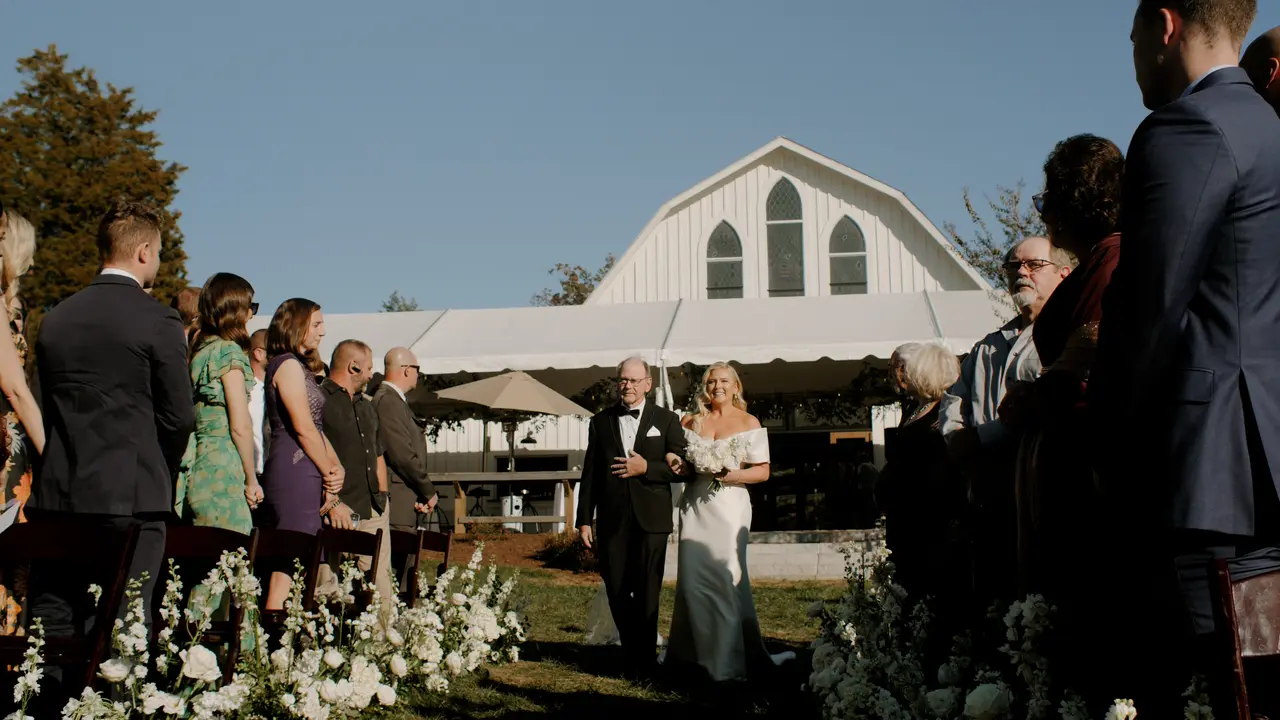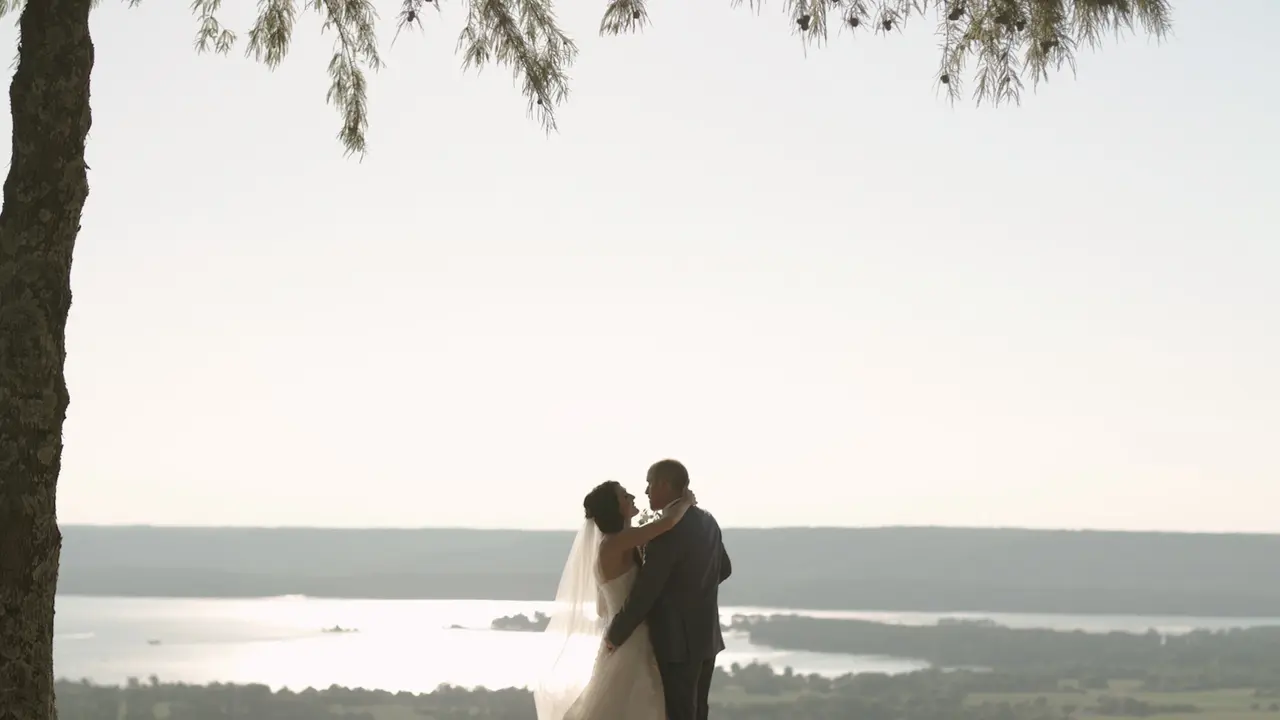Things to consider when planning a wedding
Understanding Your Vision and Budget
Before you dive into the sea of wedding planning, take a step back. Think about what you really want your day to look like. This is about understanding your vision. Do you dream of a small beach ceremony or a grand ballroom event? Your vision will guide every decision from here on out. Now, let's talk numbers because your dream needs a budget. Be realistic. How much can you spend without breaking the bank? Remember, it's not just about the big day. Consider the honeymoon, rings, and even those hidden costs that sneak up on you. Once you've got a grasp on your vision and budget, you're setting yourself up for less stress and more joy.
Deciding on the Guest List Size
Deciding on your wedding guest list size is crucial. Think of it like making a team. You want the right mix to make the game enjoyable for everyone. First off, consider your budget and venue. More guests mean a bigger budget and a larger venue. It’s simple math—more people, more cost. Also, think about the vibe you want. A smaller, intimate gathering means you get to spend quality time with each guest. A larger event? It’s more of a grand celebration but less personal. Remember, this day is about you and your partner. Choose people who matter most. Do you really need to invite your third cousin once removed? Probably not. Finally, prepare for some tough choices and maybe a bit of family drama. It’s part of the process. Stay firm in your decisions. It’s your day, after all.
Choosing the Perfect Venue
When it comes to weddings, the venue is the cornerstone of the entire event. It dictates the mood, defines the theme, and, in many ways, guides the flow of the day. So, choosing the perfect venue is no small task. First off, consider your guest count. The size of the venue needs to match the number of people you're inviting. Too big, and the wedding loses intimacy; too small, and it's uncomfortably cramped. Next, think about location. A venue that's hard to get to can mean a lot of absent RSVPs. Also, ponder the style of your wedding. Rustic, elegant, beachy? The venue should scream 'you'. Budget-wise, venues can eat up a big chunk of your wedding fund, so get clear on costs from the start. Remember to check what's included. Some venues provide tables, chairs, and even decorations, which can save money and effort. Lastly, consider the vibe during your visit. If it feels right, it probably is. Trust your gut.
Setting a Realistic Date and Schedule
Picking a date for your wedding isn't just about marking a day on the calendar. It's about considering how this date fits into your life, your partner's life, and the lives of your most cherished guests. Here's the deal: aim for a date that gives you enough time to plan without stretching so long that you lose momentum or so soon that you're stressing over every detail. Think about work schedules, holidays, and other big events that could clash with your day. Also, consider the season. A beach wedding in the middle of winter? Probably not the best plan, unless you're heading to a tropical paradise. And remember, setting a realistic schedule for the day itself is crucial. You'll need ample time for the ceremony, photos, reception, and of course, some breathing room for those inevitable hiccups. Getting the timing right can make the difference between a day that feels rushed and one that flows smoothly, making it enjoyable for you and your guests.
Selecting Your Wedding Vendors Carefully
Choosing your wedding vendors is crucial. Think of them as your wedding day team. Each vendor, from the caterer to the photographer, plays a vital role in making your day unforgettable. Start by asking friends or family for recommendations. If someone you trust had a great experience, chances are you will too. Research each vendor's work online and read reviews. This step helps you understand their style and quality. Don't rush. Meeting with potential vendors gives you a feel for their personality and if they understand your vision. Remember, the lowest price isn't always the best deal. Consider value, not just cost. Your wedding vendors are an investment in your day's success. Make sure they understand your vision and can deliver it.
Planning Your Menu: Catering and Dietary Restrictions
When planning your menu, it's essential to consider both catering options and dietary restrictions to ensure all guests have a pleasant dining experience. Start by thinking about the overall theme or style of your wedding. This will help guide your choices, whether you're leaning towards a formal sit-down dinner, a buffet, or a more casual cocktail reception. Next, talk to potential caterers about their ability to accommodate various dietary needs. It's crucial to account for vegetarian, vegan, gluten-free, and allergy-friendly options. Ask caterers if they can provide special dishes for guests with these restrictions and ensure they're prepared to avoid cross-contamination. Remember, your menu should reflect both your preferences and the needs of your guests. By doing so, you'll create an inclusive atmosphere that everyone can enjoy. Keep communication open with your caterer and provide them with a list of dietary requirements as early as possible. This foresight will help make your wedding a memorable and enjoyable experience for every guest.
Dress and Attire: Finding Your Perfect Look
Choosing the right dress and attire for your wedding is a pivotal decision, aiming to reflect your personal style and the overall tone of your event. It's not just about picking a beautiful dress; it’s about finding one that makes you feel confident and comfortable. Start early, at least 6 to 9 months before your wedding. This gives you enough time for fittings and alterations. Keep your venue in mind. A beach wedding calls for a different style than a formal ballroom. Budget wisely; remember, it's not just the dress but also the accessories, alterations, and perhaps a change of clothes for the reception. Consider your comfort. You'll wear this outfit for hours, so make sure you can move (and dance) freely. Lastly, wear what makes you happy. This is your day. If a traditional gown doesn’t feel right, explore other styles or even colors that better express who you are. This piece of clothing will be in your memories and photographs for years to come; choose something that truly represents you.
The Importance of a Backup Plan
When you're knee-deep in planning your wedding, thinking about what could go wrong is the last thing you want. But hear me out, having a backup plan is crucial. You can't control everything - weather acts up, vendors bail, and sometimes venues double-book. It's not about being pessimistic; it's about being prepared. If your big day is outdoors, what's your plan if it rains? If your photographer gets sick, do you have a quick replacement? These aren't fun things to consider, but they're necessary. Being ready for any hiccup ensures your day goes smoothly, no matter what. So when you're deep into flower choices and tasting menus, take a moment to ask, "What's our plan B?" Trust me, it'll ease your mind more than you think.
Managing Stress and Expectations
Wedding planning isn't just about picking colors or sampling cake; it's about managing stress and expectations. First, know this: things will not always go as planned, and that's perfectly okay. Start by setting realistic goals. If you dream of a fairytale wedding but have a modest budget, adjust your expectations early to avoid disappointment. Communicate openly with your partner about what you both want and expect. Remember, it’s your day, but it's also about joining two lives together. Don't aim for perfection. Instead, aim for a day that feels true to you both. To keep stress at bay, break down tasks into smaller, manageable pieces, and don't hesitate to delegate. Friends and family often want to help, so let them. Lastly, take care of yourself. Wedding planning is intense, so regular breaks and self-care are crucial. Keep focused on the bigger picture: at the end of the day, you're marrying the person you love. Everything else is just details.
Summing Up: Final Checklist Before the Big Day
Alright, you've been planning for months, maybe even years. Now, we're down to the wire, the big day is almost here. Time to go through that final checklist to make sure nothing slips through the cracks. First things first, confirm all your vendors. Yeah, you picked a killer caterer and a DJ who promises to keep the dance floor full, but double-checking they're all set will save you a last-minute panic.
Next up, your timeline. You've got a plan for how the day should flow, right? Make sure everyone in your wedding party knows it too. The last thing you need is your best man showing up late because he thought the ceremony was an hour later than it actually is.
Did someone say "emergency kit"? Hopefully, you won't need it, but having one on hand can be a lifesaver. This includes everything from extra makeup and safety pins to band-aids and a sewing kit. Trust me, it's better to have it and not need it, than need it and not have it.
Now, about those final dress and suit fittings. Everyone should be looking sharp, so confirm those appointments. And while you're at it, make sure all attire has been picked up and is ready to go.
Don’t forget to touch base with your officiant. A quick chat to confirm all the details will ensure the ceremony goes smoothly. Also, now's the time to hand off any ceremony or reception items to your venue or planner. Think guest book, place cards, favors – all that good stuff.
Lastly, take a deep breath. You've got this. A little bit of last-minute attention to detail, and your big day will be as perfect as you've dreamed. Remember, it's all about marrying your best friend, the rest is just details.

















